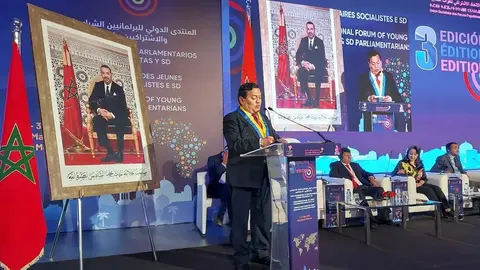The socialist family praises the efficiency of Morocco's migration strategy
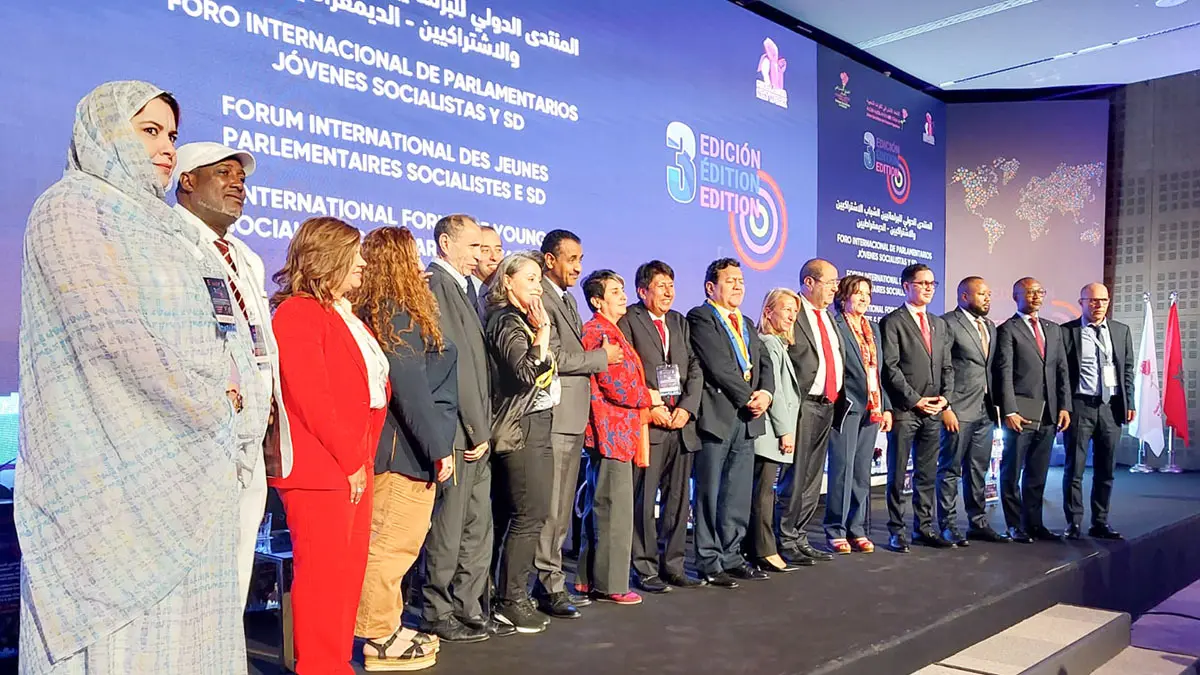
- Morocco adopts a humanist migration policy
- South-South cooperation to defend human dignity
- Fight against drug trafficking and organised crime
- Indifference, another enemy of humanity
The third edition of the International Forum of Young Socialist and Social Democratic Parliamentarians, held in Marrakech, shed light on some of the most complex issues facing the world today, ranging from peace and security in the face of geopolitical challenges to climate change and the water crisis, including migration, organised crime and drug trafficking.
The young socialists participating in this forum welcomed Morocco's strategy on migration and development, highlighting the humanist and solidarity-based nature of the country's approach to sensitive international issues, in search of solutions that serve the common good of the region.
The forum also served to raise the problems faced by the nations of Latin America, Africa, Asia and Europe, with a view to creating joint strategies through the fraternity that unites social democrats in different corners of the globe.
Morocco adopts a humanist migration policy
Aicha El Gourgi, member of the Moroccan House of Representatives, recalled that migration has become a complex phenomenon that transcends social and economic dimensions and affects international relations, and stressed that human values are at the heart of addressing this issue.
Based on the logic of integration and respect for human rights, in December 2014 Morocco adopted the first National Immigration and Asylum Strategy (SNIA), with education, health, housing, social protection, employment, human trafficking, international cooperation and governance as key elements of this strategy.
Morocco's migration policy is reflected in regularisation campaigns that took place in 2014 and 2017, which helped almost 50,000 irregular migrants obtain residence permits.
However, according to El Gourgi, this plan has faced challenges such as the resources of receiving cities; the lack of regional coordination in border control; the growth of cross-border criminal networks; and the lack of solidarity among countries.
n this regard, Morocco is seeking to consolidate its interaction and cooperation with the countries concerned, strengthening its contribution to the Global Compact for Safe, Orderly and Regular Migration.
The Moroccan parliamentarian reiterated her pride that migrants from sub-Saharan countries have chosen Morocco as their preferred destination for settlement and not just transit. This is due in part to the positive impact of the country's efforts and its commitment to managing migration from a humanistic perspective, with full respect for human rights and the fight against all forms of discrimination as priorities.
‘Through the humane, holistic and pragmatic migration policy implemented by King Mohammed VI, which has provided the legal and institutional framework to guarantee the fundamental rights of migrants and refugees, the Alawite Kingdom is consolidating its position as an African leader in this area,’ said El Gourgi.
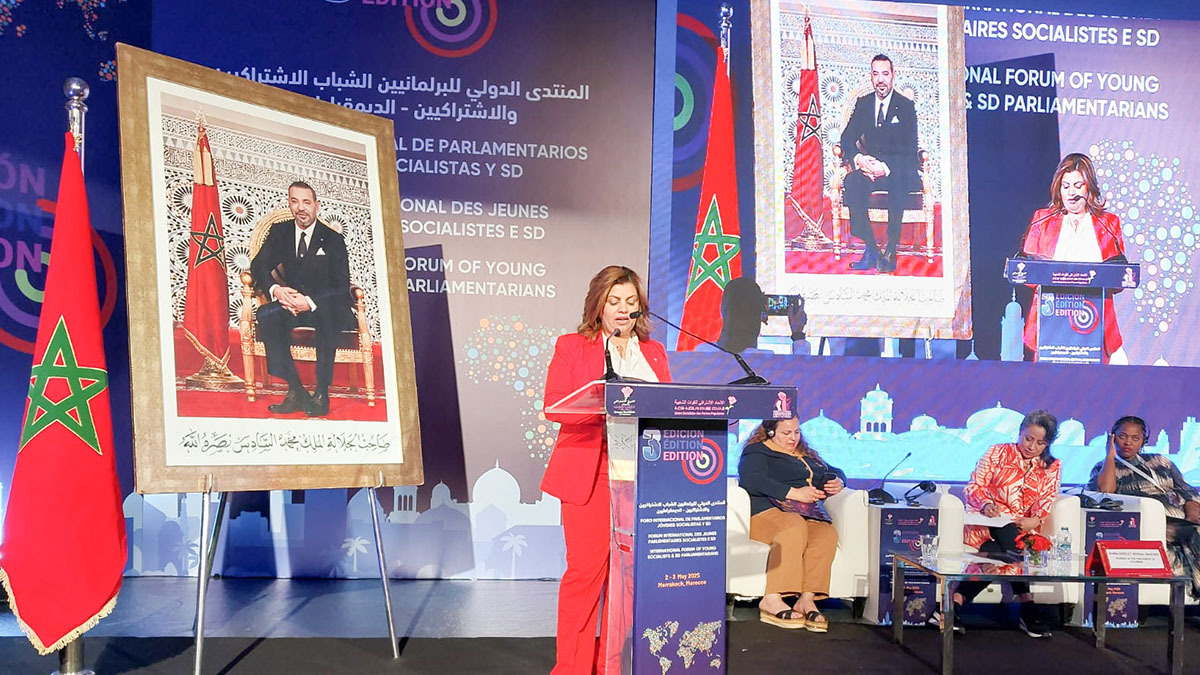
South-South cooperation to defend human dignity
Sonia Shirley Bernal Sánchez, a member of the Colombian Parliament, highlighted the need for South-South cooperation capable of protecting human dignity, striving for security and peace, and combating organised crime and drug trafficking.
The Colombian parliamentarian stated that ‘we must address these challenges by enacting stricter and fairer laws against missionary trafficking, money laundering and migrant smuggling. Public policies must be monitored and accountability ensured for the risks they pose to migration and security.’
‘The challenge of irregular migration and organised crime can only be met through genuine South-South cooperation and North-South solidarity. We must work within the framework of a global vision and real political will,’ she added.
Sánchez urged that migration be treated as a consequence of inequalities in development options and not as a threat in itself. We must place it within a normal legal framework and a moral code of ethics, distinguishing between immigrants who stay to seek security and a dignified life, and those who exploit them for criminal, political or illicit economic purposes.
As communicators of nations and peoples, socialists recognised their duty to work together to realise a common humanitarian vision, based on shared responsibility and mutual respect, which seeks to preserve human dignity and protect it from the racist barriers surrounding migrants
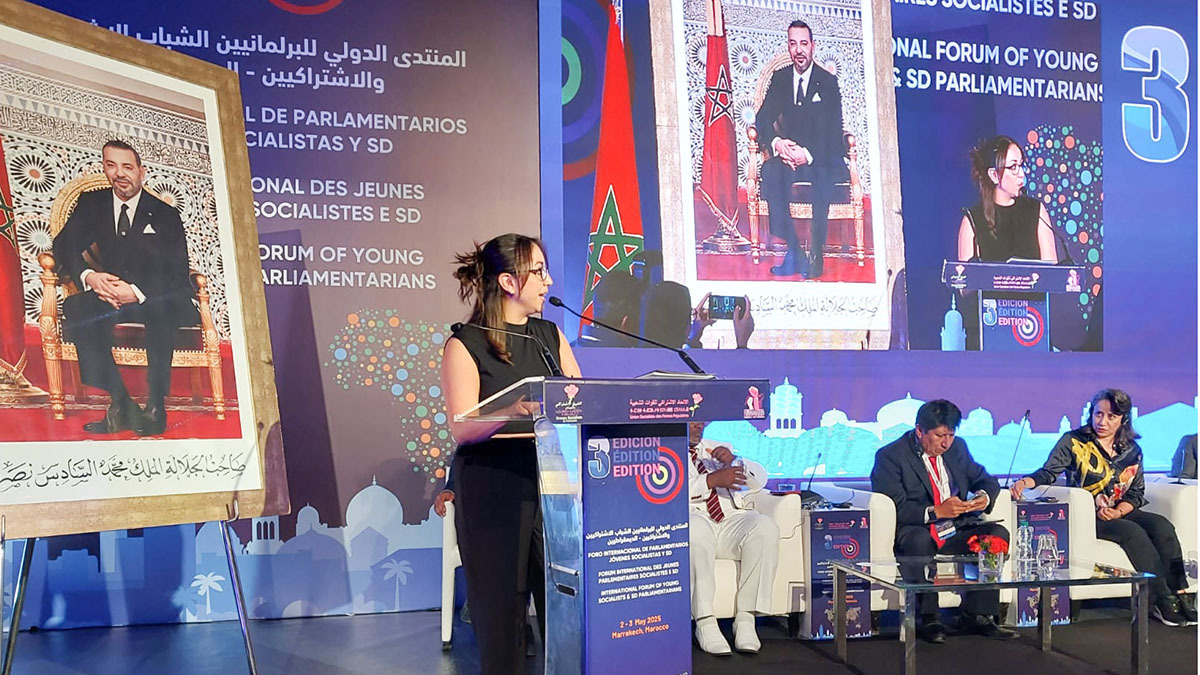
Fight against drug trafficking and organised crime
French parliamentarian Céline Hervieu criticised the rising tide of nationalists and populists, stressing the importance of alerting socialists and social democrats to the fight against drug trafficking and organised crime, particularly in France, and not minimising the impact on the population.
‘It is true that we do not produce drugs in Europe, but unfortunately we consume them. And in France we are experiencing an explosion in drug use, especially among young people,’ explained the French parliamentarian, pointing out that the level of violence continues to rise and that 90% of murders and attempted murders in France are related to settling of scores between drug traffickers.
According to data presented by Hervieu, drug trafficking in France generates €3.5 billion a year, almost half the budget of the Ministry of Justice. For this reason, a new law to combat organised crime and drug trafficking has recently been passed by the French Parliament.
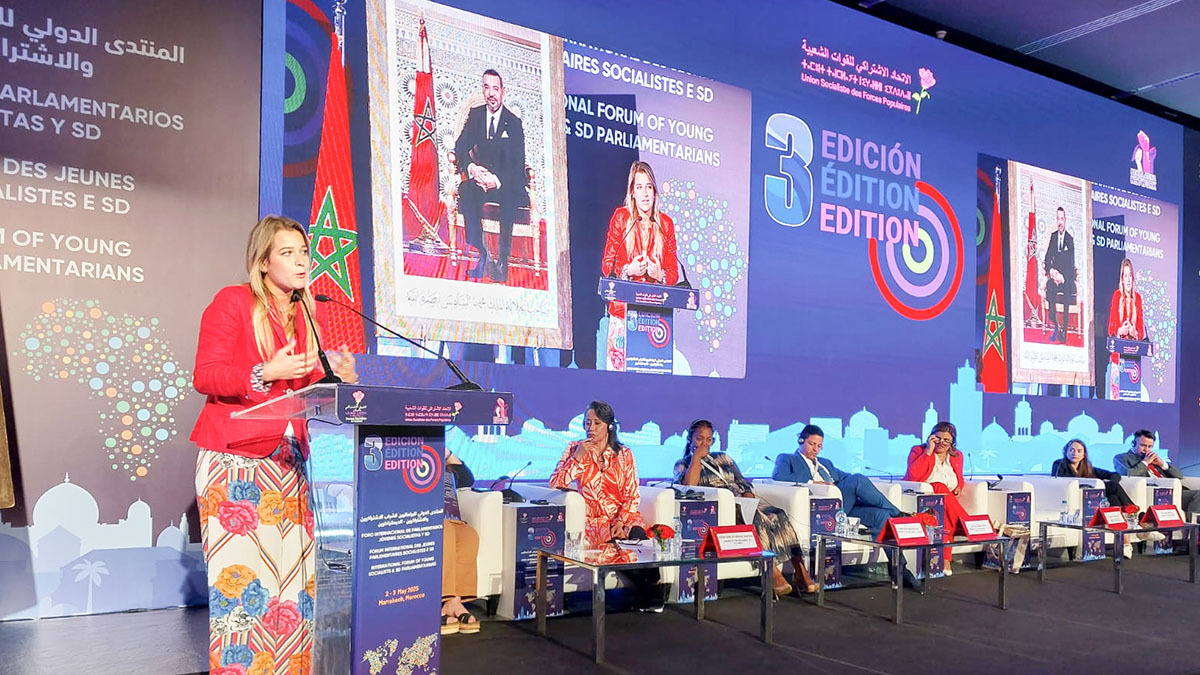
Indifference, another enemy of humanity
Claudia Díaz Gayou, representative of the Mexican Parliament, spoke about organised crime spreading throughout her country and criticised the complicity and cover-up of the authorities and governments in the face of abuse, illegality and violence. She also stressed that ‘indifference to what is happening is another enemy, not only for Mexico or Gaza or any other country with a humanitarian crisis, but for all of humanity’.
‘Today in Mexico, institutions, the rule of law and sovereignty have been weakened. In this sense, sovereignty is not lost only because of conflicts outside the nation, but because of conflicts that come from within,’ said Gayou, denouncing ‘the crisis Mexico is facing in the face of authoritarianism, the growth of abuses and organised crime’.
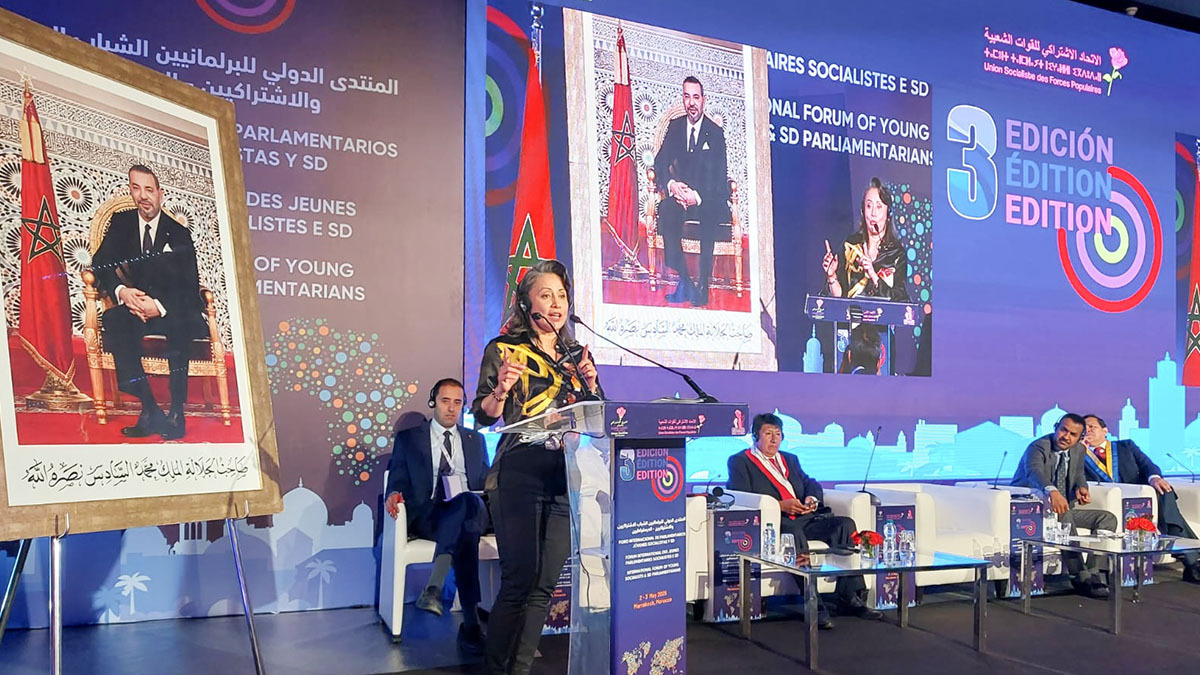
The Mexican parliamentarian stated that ‘the main problem we face, apart from the loss of democracy, is the loss of lives and blood shed in our country, with alarming figures such as the more than 215,918 people murdered in Mexico in the last six years, in addition to the 120,000 disappeared, with forced disappearance being systematic and widespread in our country.’
‘Indifference is another form of violence that we must face. It is the strongest enemy of man and progress, and collaborative work is what enables us to deal with this situation in favour of humanity,’ concluded Claudia Díaz Gayou.

